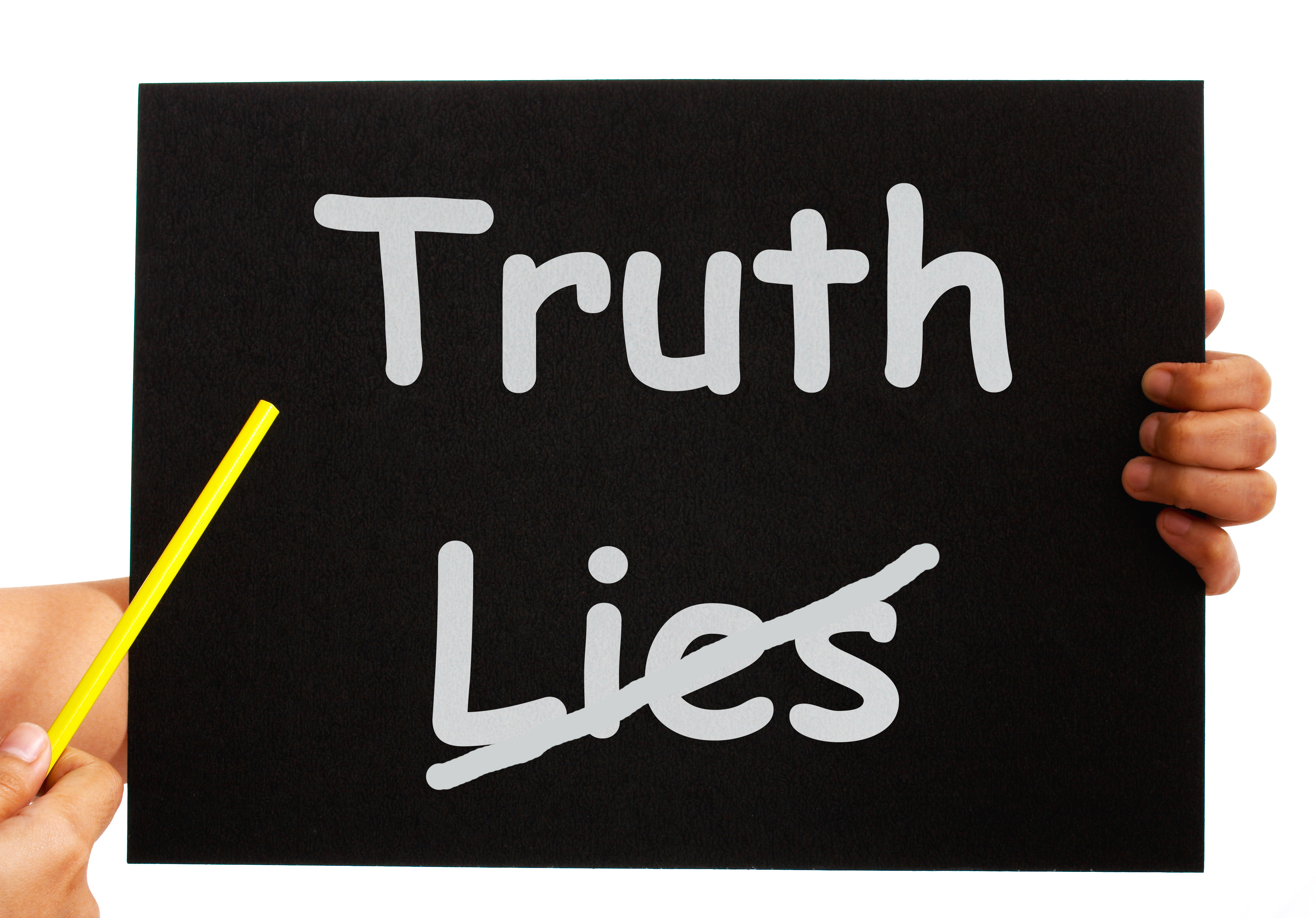In our first article in the series, we learned how we ever so subtly try to maneuver the truth (or simply tell a bold-faced lie).
The second article provided the reasons why we are motivated to stop short of the full truth.
In our final article in the series, we’ll learn how to stop lying and how to start being truth tellers. I’ve included the summary reason why we are tempted to lie along with realizations that help us not succumb.
1. To avoid negative consequences.
Sometimes negative consequences can be powerfully good things to teach us and to help us grow. If telling the truth brings these negative consequences, so be it. While it may be temporarily painful, ultimately you’ll like yourself more and be a better person if you start practicing truth-telling, even when it is inconvenient. Embrace the consequences as a learning tool.
I have a friend who used to struggle with addiction. He told me that he was a master “truth-maneuverer” to cover his tracks. Part of his recovery was to get brutally honest with himself and others. I love the quote he told me, “One thing about the truth, no matter how inconvenient, you’ll never forget where you left it.” Unlike lying, which creates a tangled web of stories to track, truth-telling frees us from this worry and anxiety.
2. To protect an illusion of who we are.
It is important to understand that the illusion we present is rarely as solid a cover as we think. Many people already see behind the curtain of our feigned attempts at presenting ourselves perfectly. In fact, it is this realness and imperfection that attracts us more to people. Begin to be real and transparent as you let go of more efforts at image management. You’ll find it is incredibly freeing to be the YOU which you were created to be--flaws and all.
3. To get what we want.
What we want and what we truly need is not always the same thing. In fact, many times getting what we want turns into a disaster of the worst kind. Several documentaries have been made about lottery winners who in hindsight say, “I wish I never would have won” when their prize train wrecks their relationships. This is especially true if one has to lie or cheat to achieve it. There is often deep shame tied to the win if dishonesty is involved.
Many who holds faithfully to traditions have a doctrine of providence, where they believe we are supplied what we need.
Even the Rolling Stones touted this in their song containing the lyrics:
No, you can't always get what you want
You can't always get what you want
You can't always get what you want
But if you try sometime you find
You get what you need
4. To remain in control.
When we lie to hold onto control, we are buying into the falsehood that we really are in control. Next time you feel you are fully in control, look over at the 16-year-old texting while he drives next to you. The belief that we are all-controlling will be quickly shattered.
Be willing to commit to truth-telling even if it means that you will lose a bit of control. It is ironic how we sometimes willfully place ourselves in environments where we want to feel the adventure of not being in control. We even pay money for this through activities such as bungee jumping, whitewater rafting, and other daredevil type events.
There is a beauty that comes from releasing control to others, whether formally through delegation, or whether it happens as a consequence of honesty.
5. To punish someone.
Rarely does holding onto bitterness do as much damage to the party that offended us as it does to ourselves. What if everyone we offended took equal vengeance upon us?
Part of maturing is realizing that life isn’t fair. Sometimes people “skate by” when they should be held accountable. Meanwhile, people who weren’t the causative agent of an action receive the negative consequences of it. The view of karma, held by some, or ultimate divine justice, are some attempts to answer to this perceived injustice. Simply tell the truth, and you will be free from all kinds of energy wasted on revenge strategies.
THE PRACTICAL
If you have been a habitual or even infrequent “maneuver” of the truth (I’ll save the term liar, as it might cause your walls to go up), you are going to have to consciously address something that has become an almost unconscious reaction.
You will have to press into truth telling, even if it causes fear. When you feel yourself shrink back from the truth, or find yourself thinking, “I need to hold onto this important information until I can figure out my maneuver,” you must begin the practice of telling yourself, “NO! I am going to tell the truth right now.”
You will even have to do it at the simplest of times when a white lie seems innocuous. A client was once working on truth telling while being employed in an open concept office. When the phone would ring, one of the 4 people in the room would have to pick it up. Many times, the call was for a co-worker, and one of them would tell my client to tell the caller that he or she wasn’t there or that they were in a meeting. At first, the client did this dutifully. But soon, he realized it was teaching him to hold onto a bad pattern, so he “asked” (i.e. told) his co-workers that he preferred to say that they simply weren’t available for a phone call (the truth). They agreed, and soon the whole team was using this more accurate verbiage.
In the end, truth-telling is the best way forward. We constantly teach our children not to tell a lie. The same practice would be good for us. The inner satisfaction of honesty is rewarding.




